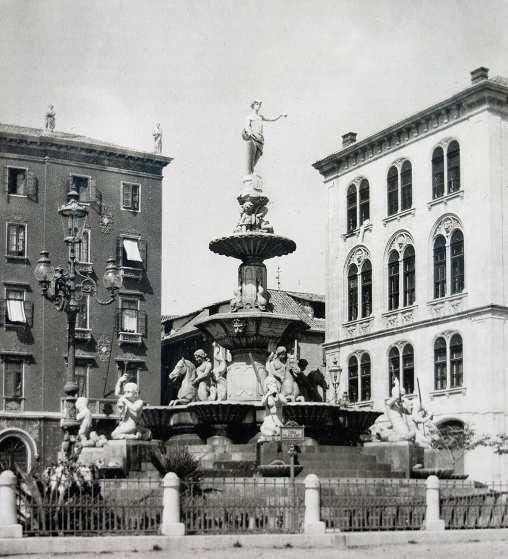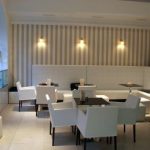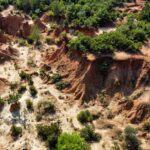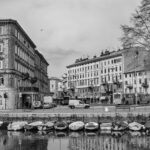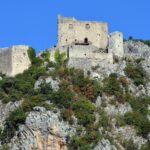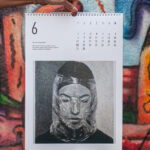Trg Republike (Republic Square) is a large open square located just west of Riva, past Marmontova. It is surrounded on three sides by an elaborate red neo-Renaissance structure known as Prokurative. Locals therefore call the square Prokurative and rarely by its real name. The southern side of the square is open, providing a breathtaking view of the harbor front.
Prokurative was built in the 19th century under the supervision of General Marmont and initiated by Split’s famed mayor Antonio Bajamonti. The design of Prokurative is largely inspired by architecture in Italy during the time of construction and closely resembles St. Mark’s Square in Venice. As a matter of fact, the architect of Prokurative was from Venice himself and wanted to build a structure that reminded him of home as he missed his city. Looking straight onto the square with the Adriatic at your back, run you eye above the length of the archways on your left and then on your right. On the left side, you will notice a series of captivating carved reliefs beneath the windows however, as you shift your eyes to the colonnade on the right, you will notice that there are no carvings along the whole stretch. It is said that the architect missed his Venice so much that he returned home before the project was complete, and therefore this section of the Prokurative remained unfinished.
During the wintertime Prokurative remains quite deserted however, as soon as the sun shines, the café chairs get occupied and children play ball on the square. On the square you will find the new and popular Bajamonti eatery and café, the Bellevue hotel, and the seasonal Spalatin restaurant. Prokurative is also the venue for a myriad of events, most notably the Split Music Festival.
At the foot of the steps leading down from Prokurative towards Riva, a rather dull fountain will meet you. A grand fountain was once located here called Monumentalna Fontana or Bajamontuša erected in the late 19th century by famous Italian sculptor Luigi Ceccona. Its construction was also initiated by mayor Bajamonti and was a symbol of his success in bringing running water into the city. The fountain was destroyed in 1947 by city authorities as a symbol of fascism and Italian occupation. Some of the carved heads from this fountain can be found in Split City Museum today.
